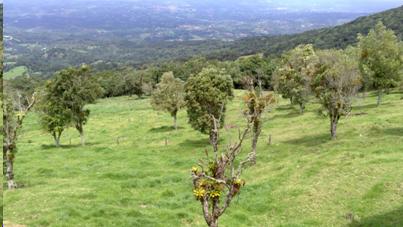Beyond natural conditions it is the institutional setting that determines how landscapes are used. The institutional setting encompasses governance frameworks at multiple political levels including a multitude of public, private and societal actors.
However, after years of recognizing the need for coordinated multilevel governance, we have failed. To move forward, we need to think about why we have failed and, from there, develop a new architecture consistent with this explanation.
Obviously, complex multilevel governance of landscapes brings an increasing diversity of actors with different values to the table, with the intersection of state and private, global to local, across multiple sectors each focused on different problems and policy instrument preferences, creating challenges for coordination within the systems of power that result.
Law is functional where it is responding to a need in society, or it proposes to change behavior in society. Multilevel governance requires integration to reduce tensions between laws and institutions. Social learning is core to understanding people and institutions to build coherence. Using law and institutions to invest in people provides a basis for informed choices that could guide or motivate behavior that promotes sustainable management of various landed natural resources.
Furthermore, coordination and integration of existing and upcoming policies and legal frameworks without prioritizing one sector’s policies over others are crucial to facilitate long-term, stable and efficient governance frameworks for a sustainable landscape approach.
In this context, policy learning is one promising way to improve coordination of different land use policies across different arenas primarily based on informative instruments. In a multilevel governance system where there is a multitude of interests and ideas, policy learning means focusing on synergies between actors to uncover win-win situations.
At the IUFRO/CIFOR/IDLO Discussion Forum on “Governance and legal frameworks for sustainable landscapes”, at the Global Landscapes Forum on Sunday at 15:00, renowned representatives from policy science and law will give deeper insights into the development of integrated governance frameworks and underpin their statements with fresh facts and practical examples from various regions in the world. There will be ample room for discussion and exchange of ideas with the audience, so do come along and join in!
For more details, please visit: http://www.landscapes.org/agenda-item/day-2-nov-17-2/discussion-forums/governance-legal-frameworks-sustainable-landscapes/#.UoCfS6BhJgA
Speakers:
Benjamin Cashore
Professor, Environmental Governance & Political Science; Director of the Governance, Environment, and Markets Initiative at Yale (GEM) and Director, Program on Forest Policy and Governance
Robert Kibugi
Lecturer on Environmental Law, University of Nairobi
Daniela Kleinschmitt
Professor, Swedish University of Agricultural Sciences, Department of Forest Products, Head of Forest Policy Unit
Moderator:
Niels Elers Koch
President of the International Union of Forest Research Organizations (IUFRO), Director General of Forest and Landscape Denmark, University of Copenhagen


Leave a Reply